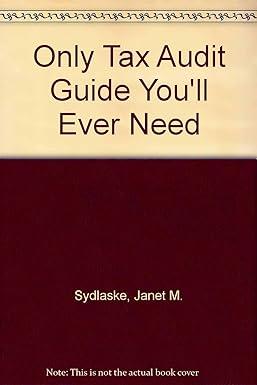Question
1. Taxpayer A purchased $100,000 of corporate bonds yielding 12.5% per annum; the interest income from these bonds is taxed at a rate of 28%.
1. Taxpayer A purchased $100,000 of corporate bonds yielding 12.5% per annum; the interest income from these bonds is taxed at a rate of 28%. Taxpayer B purchased $100,000 of municipal bonds yielding 9% per annum. The interest from these bonds is tax exempt. The bonds have similar maturities and risk.
What is the after-tax rate of return earned by each taxpayer? Is taxpayer B paying taxes in any sense here?
a. Who are the taxes being paid to?
b. What is the implied tax rate?
2. A taxpayer works at a corporation nearing the end of its fiscal year. The company has had a very successful (profitable) year and has decided to award the employee a cash bonus of 20% of annual salary (a bonus of $30,000). The firm has announced that the employee can take the cash bonus this year or defer it until next year. The taxpayer faces a current tax rate of 39.6%, but because she plans to work only a 50% schedule next year, she expects to face a tax rate of 31%. Assuming she can earn 5% after tax on her personal investments, should she accept the bonus this year or next year? Suppose she can earn 15% after tax on her personal investments. Would you change your recommendation?
Step by Step Solution
There are 3 Steps involved in it
Step: 1

Get Instant Access to Expert-Tailored Solutions
See step-by-step solutions with expert insights and AI powered tools for academic success
Step: 2

Step: 3

Ace Your Homework with AI
Get the answers you need in no time with our AI-driven, step-by-step assistance
Get Started


